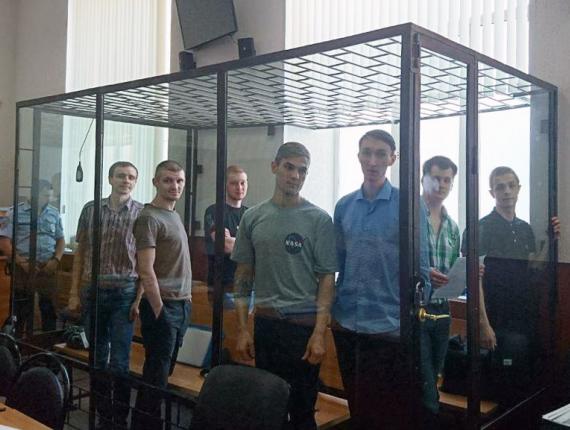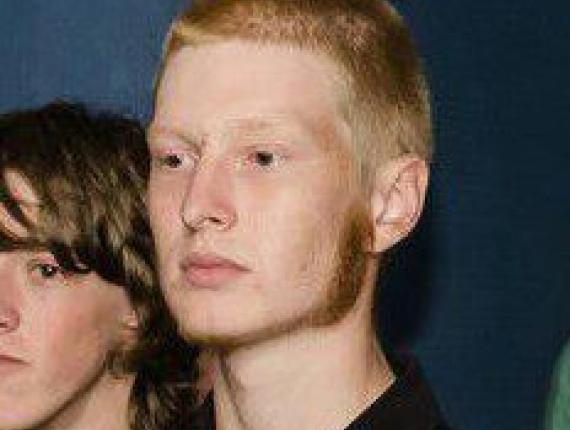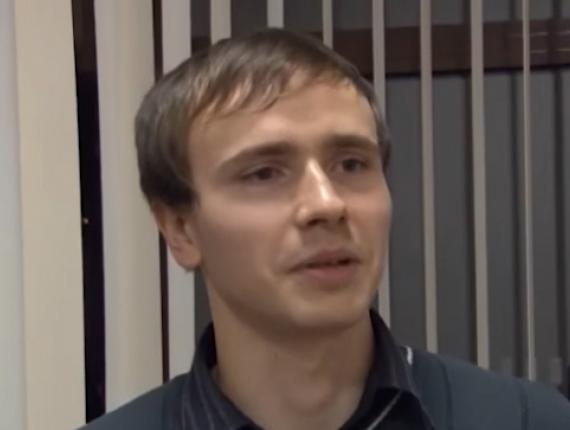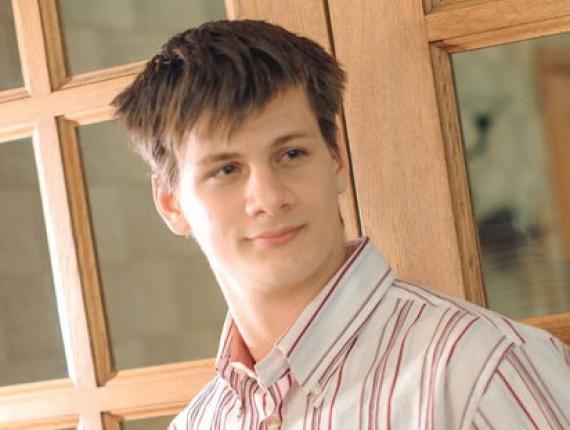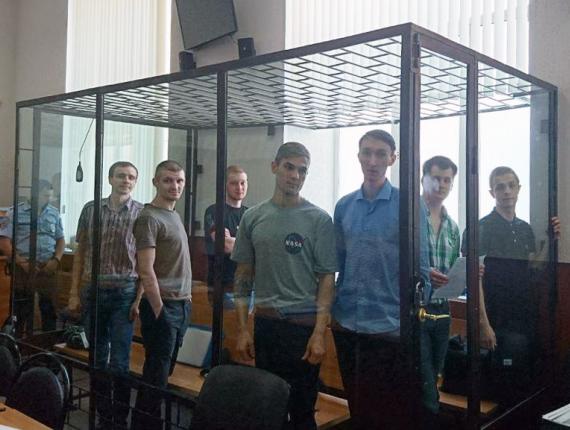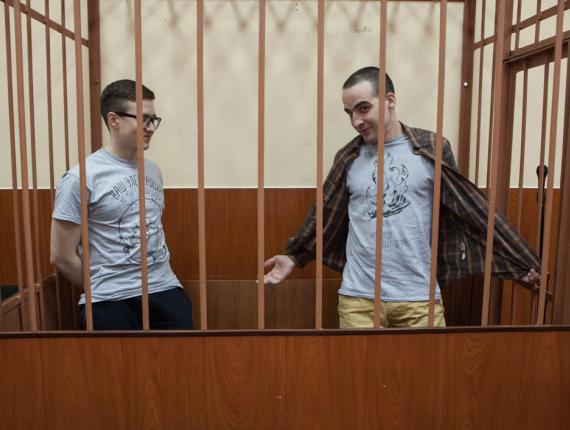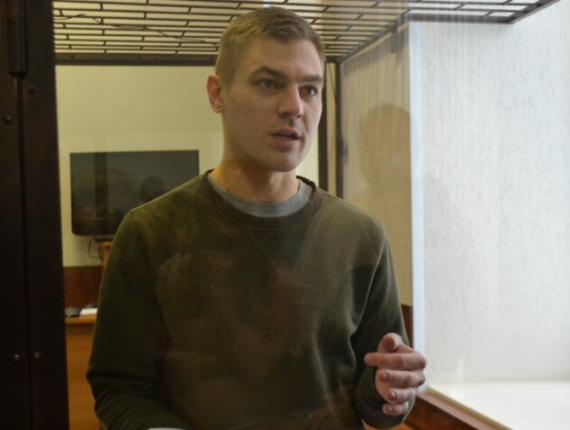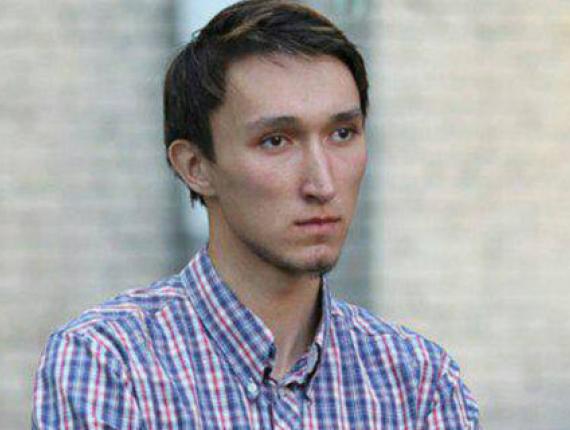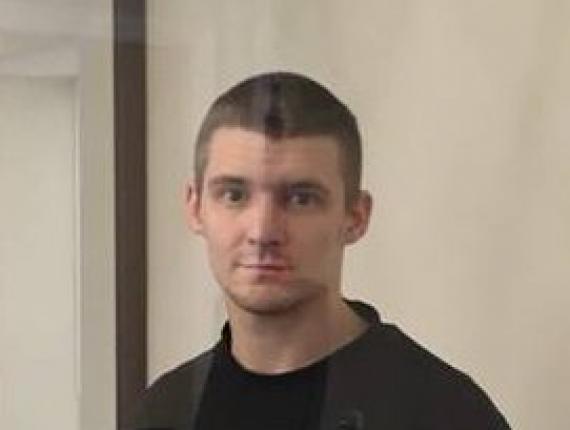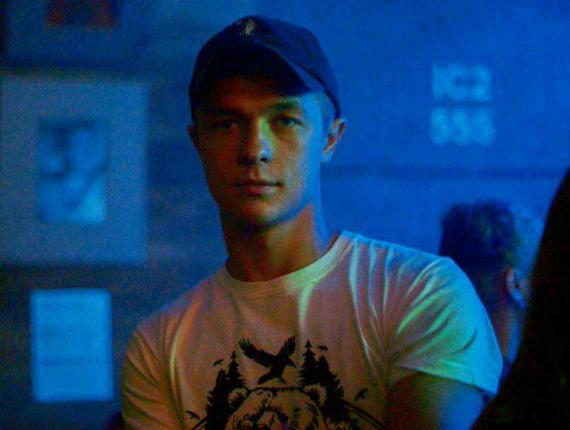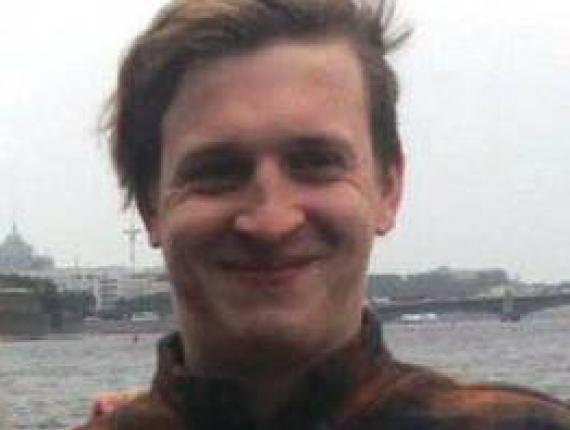The Antifascists from Penza and St. Petersburg Accused of Being Members of Banned Organisation Network Are Political Prisoners, Memorial Says
The defendants have not been involved in terrorist activites; the criminal case against them has been fabricated and is based on testimony given under cruel torture
The Memorial Human Rights Centre, in accordance with international guidelines, recognises the antifascists Maksim Ivankin, Vasily Kuksov, Mikhail Kulkov, Dmitry Pchelintsev, Arman Sagynbayev, Andrei Chernov, Ilya Shakursky, and Igor Shishkin as political prisoners. We demand their immediate release and that all charges against them for alleged involvement in a terrorist group be dropped.
Charges against the Penza antifascists
Dmitry Pchelintsev and Ilya Shakursky have been charged with setting up the Set (Network) organisation, which in the view of the investigators is a terrorist and anarchist association and was later banned in Russia (Part One of Article 205.4 of the Russian Criminal Code). Maksim Ivankin, Vasily Kuksov, Mikhail Kulkov, Arman Sagynbayev, and Andrei Chernov have been charged with membership of this organisation (Part Two of Article 205.4 of the Russian Criminal Code).
In addition, Pchelintsev, Shakursky, and Kuksov have been charged with illegal possession of weapons and ammunition (Part One of Article 222 of the Russian Criminal Code), while Ivankin, Kulkov, and Chernov have been charged with trying to commit large-scale illegal dealing in drugs (Part Three of Article 30, in conjunction with Point «g» of Part Four of Article 228.1 of the Russian Criminal Code).
Shakursky has also been charged with illegal possession of explosives (Part One of Article 222.1 of the Russian Criminal Code). Pchelintsev has been accused of trying to destroy property motivated by hooliganism (Part Three of Article 30, in conjunction with Part Two of Article 167 of the Russian Criminal Code).
Maksim Ivankin and Mikhail Kulkov were arrested on 4 July 2018, the rest have been held on remand since the autumn of 2017. None of the defendants has a criminal record.
Why we believe the charges related to the banned Network organisation to be fabricated and politically motivated
- There is much testimony that all the defendants and at least four witnesses in the Penza case were subjected to torture. The use of torture in the work of the investigators was a general rule and one of the main instruments used during the investigation in the criminal case. The torture of the St. Petersburg defendants Viktor Filinkov, Yuly Boyarshinov, and Igor Shishkin has also been documented by the Public Oversight Commission. The Network case, both in Penza and St. Petersburg, has been wholly built on the testimony obtained under torture. All the ‘self-incriminatory statements’ obtained by this means are inadmissible in court and cannot be used as evidence.
- This case is an example of reality being fitted to the conspiracy theories of operational and investigative officers from the Penza FSB. The description of training, division of responsibilities and the structure of Network, set out at the trials in Penza and St. Petersburg, was much more like information about a group of strike ball players. The version according to which a small group of young people with left-wing views, living in Penza, seriously decided to violently overthrow the current political regime in Russia is extremely unrealistic.

- Evidence gathered by the investigation, presented at the trial that began on 14 May 2019 in the Volga District Military Court, is extremely unconvincing and consists of classified testimonies of witnesses who are either hostile to the defendants or who wish to avoid prison, two planted pistols, one improvised explosive device, doctored recordings of telephone conversations and documents of the ‘terrorist group,’ very crudely fabricated from the correspondence of young women of anarchist persuasion.
- The defendants are in fact not accused of having committed any real actions or attempts to commit such actions. All the offences they allegedly were going to commit, even according to the investigators, are concerned with an indeterminate, distant future. Moreover, initially the FSB asserted that the participants in Network had prepared to carry out acts of terrorism during the FIFA World Cup in the summer of 2018. However, the final charges contained no mention of this. Even those defendants who pleaded guilty stated that the purpose of the training and joint activities in Network was nothing other than self-defence in case of attack by radical nationalists during possible disturbances, and not preparation to seize some buildings or other, or the commission of terrorist acts.
- Maksim Ivankin and Mikhail Kulkov have also been charged with drug trafficking. They pleaded guilty to these crimes in court. Yet, this cannot prevent them being recognised as political prisoners on groundless charges of terrorism. At the same time, we believe that these episodes must also be objectively investigated because of the violation of Ivankin’s and Kulkov’s rights during the preliminary investigation. There is a strong likelihood that the charges against Chernov under Article 228.1 of the Russian Criminal Code were fabricated given that he was charged almost a year after his detention and the investigatory authorities gained access to the smart phone found on him at the time of arrest. Neither his fingerprints nor other biological traces were found on the packets containing drugs.
- It is obvious that the prosecution of the antifascist activists in Penza, part of on-going repressive measures against anarchists and anti-fascists that sharply increased in 2017–2018, is politically motivated. The authorities cultivate the image of anarchists as people who are related to terrorism and seek to destabilise society and the political system. Detained anarchists are, moreover, routinely and blatantly tortured. At the same time, all extra-systemic, informal self-organisation in society, especially of young people, is closed down.
Others prosecuted for participation in the banned Network organisation are also political prisoners
- Earlier the Memorial Human Rights Centre recognised two of the three defendants in the St. Petersburg case of Network — Yuly Boyarshinov and Viktor Filinkov — as political prisoners. We believe their charges to be trumped up. In studying their cases, we found no evidence that their actions constituted any danger to the public.
- The third defendant in the St. Petersburg case, Igor Shishkin, had pleaded guilty to all charges. As we believe that the Network case is a complete fabrication, we consider that Shishkin, convicted only of participating in Network, must also be recognised as a political prisoner.
More information about the case of the Penza anti-fascist activists is available here.
Recognition of an individual as a political prisoner, or of a prosecution as politically motivated, does not imply that the Memorial Human Rights Centre shares or approves the individual’s views, statements or actions.
Donations to support the defendants can be made to the Anarchist Black Cross via PayPal at abc-msk@riseup.net (please indicate currency in euros and note the donation is for the Network case).
A petition to stop the prosecution in the Network case can be found here.
Donations to provide assistance to all Russian political prisoners can be made via PayPal at helppoliticalprisoners@gmail.com.


